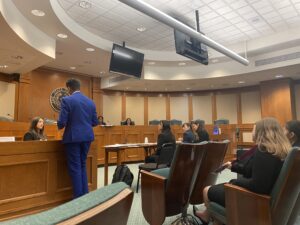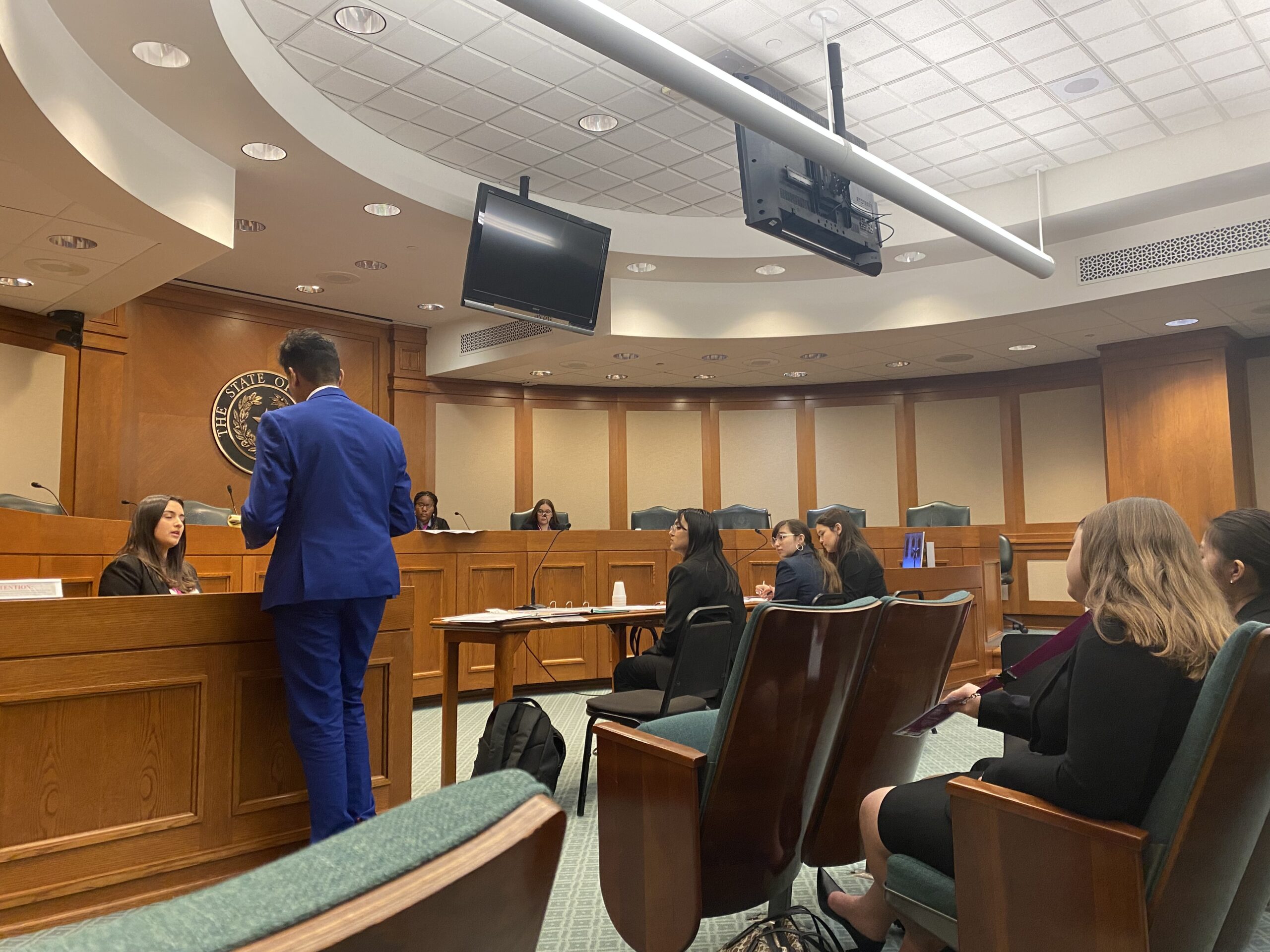By Maryfer Garcia,
Chisholm Trail High School
In the Judicial section, there are many things that go into being a witness. This ranges from the delegates’ interest in the character, the understanding of who they are playing, and the dedication put into their role as a witness. Witnesses all have different approaches to getting their point across and helping their teams.
Being a witness requires much thought about what to say in order to achieve your goal. In some cases, the witnesses try to convey emotions they are feeling, while in other cases, there is a need to be logical and well-versed in areas that need much learning and investigating.
“I think that because he’s a detective I had to get that he is a power of authority,” said Evelyn Choi, a first-year YG student. “I just had to find a way to answer the question without giving the response that they really needed. I think that took the most practice to get around that.” In a confident way, Choi was able to join her fellow delegates in joy as they won the round two trial case.
In the opposite case, there are witnesses that require more emotion to be able to truly get their point across. Some witnesses study the emotions and relay their message through their tone, facial expressions, and body language. “Because this is a sad case, sometimes the cross-examiners (CX) ask a lot of questions that have sad endings,” Nanda Acherya said. ”I just lower my voice a little. I change my expressions, and my strategy is to just go with the flow, go with the moments. If I’m starting off happy I might not end happy. I might be sad. And if I’m starting sad, I might end up happy. That’s my strategy, just to change my facial expressions and go with the flow,” Acherya said, after achieving the first win of the day in her round one trial.
While Choi was on the prosecution’s side and Acharya was on the defense side, they both came to the agreement that when portraying a witness “you can’t just read the affidavit” Choi said. ”You have to go into the evidence you have to analyze it just like your attorneys do.” At the end of the day, all of the witnesses used their understanding of the characters, along with the emotions and logic, to better portray their side of the story.


